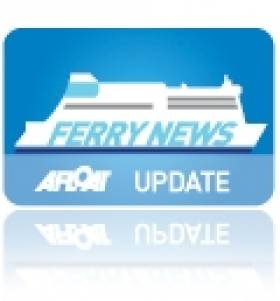Displaying items by tag: UKSpain routes close
LD Lines Close UK-Spain Routes from Poole
#UK-SpainClosures - LD Lines which closed the Irish-Spanish route last month as previously reported on Afloat.ie also ceased operations on UK services to northern Spain last weekend.
The French operator had only launched the Poole-Gijón less than a year ago and beforehand Poole-Santander in 2013.
According to the Bournemouth Echo, a spokesman for LD Lines said: "We originally had sailings available to the end of September but suspended bookings for the period beyond September 7 when we started reviewing the future of the routes.
"As a result, a relatively small number of customers are affected by the closure of the routes. All such passengers have been transferred to another UK - Spain operator on sailings as close as possible to their LD Lines booking".
LD Lines had been operating a once-weekly return services between Poole and Gijón, and a round trip every weekend between Poole and Santander. Both were aboard the Norman Asturias, the largest ferry to enter the port, which can take up to 500 passengers, 200 cars or 110 freight vehicles.
It is understood that the passenger service was extremely popular but the freight service had declined. Brittany Ferries started a competing service from Portsmouth in March.
Afloat.ie adds that LD Lines are now reduced to operating a single service across the Bay of Biscay, on the St. Nazaire-Gijón route by ro-pax Norman Atlantic. This vessel had served also on the Irish leg of the landbridge route to Spain via the mid-west French port.






























































